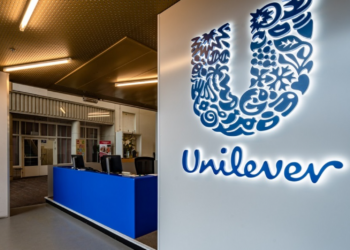Consumer Goods company, Unilever released its 2016 half year results showing pre-tax profits rose 1,480% to N1.4billion. The company also recorded strong year on year top line growth within the same period with revenues rising 12% to N32.2 billion.
On the surface, this looks like a great result and could imply that the consumer goods company was indeed weathering the storm amidst a very harsh economy. But a drill down further and you know there is still a reason to be worried.
Quarter on Quarter
Looking at the result on a quarter on quarter (QoQ) basis reveals a different story. From posting pre-tax profits of N1.4 billion in the first quarter the company reported pre-tax profits of just N68 million in the second quarter. Revenues were also down 7.7% QoQ. Sales in the second quarter of 2016 (N15.4b) did top sales in the corresponding quarter of 2015 (N13.8) but we are more likely to compare this result on a quarter on quarter basis than a year on year basis. The poor state of the economy is still riveting through the balance sheet of companies and Unilever wasn’t spared at all in this quarter. Apart from the QoQ dip in revenues, cost of sales also went up by 4% QoQ. The outlook for the third quarter is also not looking good, with inflation rate hitting 16.5% and the country set to be confirmed to be in a recession.
Revenue but no cash
A cursory look at the company’s sales as it relates to its receivables also suggest that the company is finding it difficult translating some of its income to cash. Out of the revenue of about N32 billion in the first 6 months of 2016, the company only collected N8.6 billion in cash. The N8.6 billion received could barely cover the N7billion in negative cash balance from the year before. From the N8.6 billion collected in cash it used another N1 billion to service its debt obligations keeping it a hole of N608 million.
Unilever is currently operating on borrowed funds with a total external loans of N12.9 billion, 1.4x more than its shareholders equity of about N8.9 billion. In fact, its N11.4 billion in cash belongs to its lenders keeping the company on the edges of a liquidity crisis. If the banks pull the plug today (which is unlikely) Unilever will find it hard to remain afloat.
Buy sell or hold
Unilever share price at N33 has returned -23.7% year to date and -13.2% in the last one year. The stock is one of those stocks riding on foreign investor demand to boost its value. Despite a 50% back to back drop in profits between 2013 and 2015, Unilever still attracts an astonishing 56x price earnings multiple. That is, investors are paying 55 times 2015 earnings for a share of a company that has reported a 50% decline in profits for the last two years. More propounding is the fact that dividend yield is also 0.15%. For a country with an inflation rate of 16.5%, Unilever’s dividend amounts to a 0.15% return. One could also attribute the high valuation to last year’s announcement that the parent company wanted to increase its stake in the company from 50% to 75% at a price of N45.
The verdict is simple to us, the stock isn’t worth more than N10 but what do we know?





















Lol